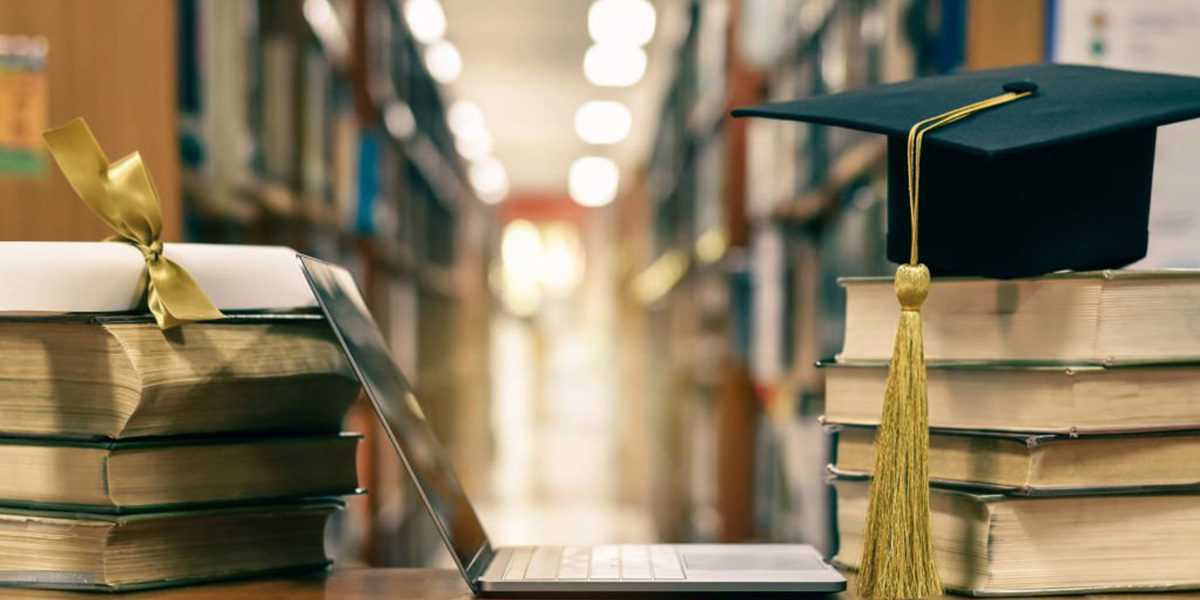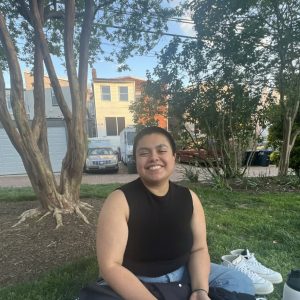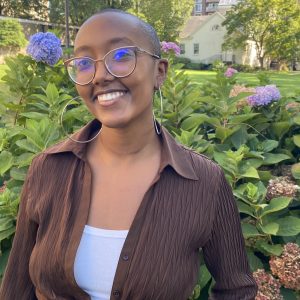The esteemed scholarship program provides financial and professional opportunities to high-achieving students

Last month, the American Library Association (ALA) announced the recipients of the 2024-2025 ALA Spectrum Scholarship, which include College of Information (INFO) master’s in library and information science (MLIS) students Amy Guerrero and Elizabeth Tibebu. The scholarship promotes diversity in the library profession by supporting students from underrepresented ethnic and racial backgrounds pursuing a graduate degree in library and information science.

MLIS student Amy Guerrero
Guerrero is deeply committed to community building and social justice. They say the scholarship is pivotal to their professional and personal growth. “I was part of a similar scholarship group during my undergraduate career, and it helped me become the person I am today,” they say. “ I am excited to learn from others in my field and see what I am capable of.”
The network of like-minded professionals will be instrumental in their journey, providing both inspiration and support as they navigate their career in public librarianship.
Guerrero’s aspirations are clear and well-defined. “I hope to have a long career in public librarianship. I am currently a children’s associate and specialize in programming for children under the age of five; however, I’d also like to work with teens, adults, and even collection management,” they say.
Their passion for inclusivity and progressive change within libraries is evident. “I strongly believe that public libraries should be political spaces, and move in accordance with social movements,” they say. “I hope to introduce more politically-minded programs and services, such as zine catalogues, mutual aid efforts, and protective measures against COVID-19. Also, I hope to become a branch supervisor one day.”
An MLIS degree is an essential part of their plan to achieve their goals. “The MLIS program has helped me put theory into practice. As a public-facing role, librarianship can be overwhelming and even repetitive. For that reason, it’s important to understand the role of libraries in society and the responsibilities of working in one,” they say.
They credit professors like Ana Ndumu and Charles Duquette for their influential roles in their education. “They have been instrumental in highlighting the many facets of librarianship, from serving the community to developing leadership skills and management philosophies,” they say.

MLIS student Elizabeth Tibebu
Tibebu believes diversity is crucial in every field, including information science. “This scholarship is important to me because there should be more people of the global majority in the information field. I’m grateful to be part of a network of people with similar interests, and am excited to connect more with those in my cohort,” she says.
For Tibebu, the scholarship is not just about financial aid; it’s a gateway to a community where likeminded individuals can grow and thrive together.
With a clear vision of her future, she aspires to become an oral historian and community-based archivist. Her dedication to preserving Black history is evident as she says, “I hope to be a part of this tradition of Black memory workers who are stewards of Black history, pushing against the erasure of our stories, relationships, lives, and movements.” Inspired by the words of Saidiya Hartman—“we are coeval with the dead”—she emphasizes the importance of acknowledging our history and its impact on the present, especially in times of crisis. “Just because we don’t see something, or choose to ignore it, does not mean it has no bearing on our lives now,” she says.
“It’s really important to me to capture and remember people and beings as they were, regardless of how hard capitalism, anti-blackness, homo/transphobia try to make us forget,” she says.
Tibebu’s dream project involves collaborating on oral histories with Black women (especially LGBT) elders in the DC area about their lives and organizing work. “I want to help build the resources I wish I had when I was younger; it’s incredibly necessary that we see ourselves reflected in the past and our future,” she says.
Pursuing an MLIS degree was a strategic decision for Tibebu. “I wanted to get my MLIS degree so I could get more hands-on experience, and learn more of the tangible skills offered through formal education like this (e.g. cataloging, preserving collections, etc),” she says. The degree equips her with critical skills such as ethical collection practices, navigating the power dynamics between people and institutions, and “increasing access to knowledge and information to change our material conditions.”
Most importantly, she is motivated by a broader mission—using her knowledge to foster change. “All of this learning will inform and support the work I do once I finish my program,” she says.
For more information about the program, check out the ALA’s official announcement.